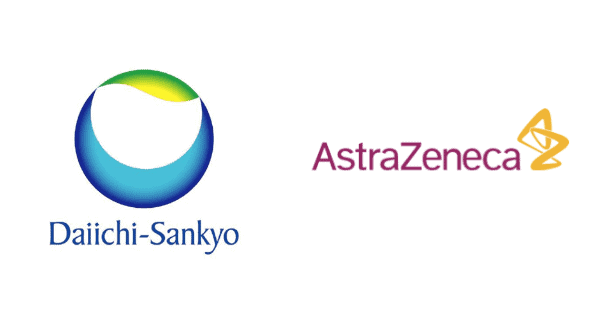
AstraZeneca has the positive pivotal trial it needed to justify its big investment in Daiichi’s HER2-targeting antibody-drug conjugate DS-8201, a rival to Roche’s Kadcyla in breast cancer.
The two partners have reported top-line data from the pivotal phase 2 DESTINY-Breast01 study showing that DS-8201 (trastuzumab deruxtecan) met its primary objective in HER2-positive breast cancer patients who had failed or discontinued treatment with Kadcyla (trastuzumab emtansine).
The results aren’t being made available just yet, but AZ says response rate in this heavily pre-treated patient group should support a regulatory filing in the US before the end of the year.
AZ paid a whopping $1.35bn upfront to license DS-8201 and take on Kadcyla, which had sales approaching $1bn last year and is a key part of Roche’s HER2 drug trio alongside Herceptin (trastuzumab) and Perjeta (pertuzumab).
The deal – which could be worth up to $6.9bn if development and sales milestones are met – is viewed as a big wager on DS-8201’s ability to carve out market share among patients who progress on HER2-targeting drugs as well as in those whose tumours have lower levels of the HER2 biomarker.
There are no anti-HER2 therapies currently approved for HER2 low expressing breast cancer, which represents about half of all cases, and Daiichi and AZ have early data suggesting that DS-8201 could also have a role to play in other tumours, including gastric, colorectal, and non-small cell lung cancer (NSCLC).
In the meantime, AZ and Daiichi are hoping to take on Kadcyla in the second-line HER2 market as well as provide an additional third-line option in patients who progress despite treatment with Roche’s drug. The FDA has granted it a breakthrough designation in the third-line setting.

AstraZeneca’s José Baselga
AZ’s recently-appointed head of oncology R&D, José Baselga, said the new results reinforce and are consistent with the findings from a phase 1 trial reported last year, which showed an “unprecedented” duration of response in heavily pre-treated patients.
“We believe this antibody drug conjugate has the potential to redefine the treatment of patients with HER2-expressing cancers, and we are eager to bring it as quickly as possible to patients with refractory HER2-positive breast cancer who continue to have high unmet medical need,” he added.
DS-8201 is said to be a more potent ADC than Roche’s drug because it pairs the anti-HER2 antibody with a topoisomerase inhibitor – rather than Kadcyla’s tubulin inhibitor – and that means it can carry a greater cytotoxic payload.
If approved, the ADC would add to AZ’s portfolio of emerging cancer drugs, sitting alongside cancer immunotherapy Imfinzi (durvalumab), targeted therapy Tagrisso for lung cancer and PARP inhibitor Lynparza (olaparib) for ovarian and breast cancer which collectively brought in more than $3bn in revenues last year.
AZ sold $3.5bn in shares to help fund the DS-8201 deal, raising some eyebrows among analysts at the time, but chief executive Pascal Soriot was adamant on the company’s recent first-quarter results call that it was a solid decision.
“The DS-8201 opportunity was a unique one and hopefully, over time, people [will] realise the potential of this agent, which is we believe enormous,” he said.




